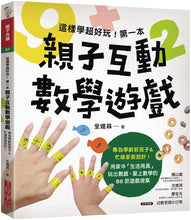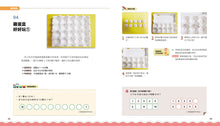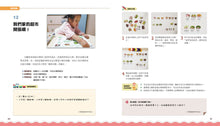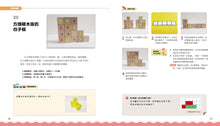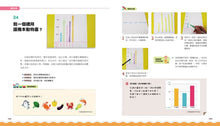
88 daily games to help you learn concepts and fall in love with mathematics
A math game book designed for preschoolers and busy parents that can be played at home
If you don’t want to wait until your child takes a math test in the future to suffer, develop a “playing math” environment at home as early as possible and let your child grow up happily in math!
The first parenting book that "integrates mathematics into daily life"
"If you want to learn math well, you must first fall in love with math. Through math games in daily life, not only can children's mathematical concepts be cultivated and they can think that "math is fun", but also they can gain confidence. Such confidence will also improve children's performance in other subjects at the same time." - Shen Yaqi, a senior elementary school teacher
"Math is not something that children should wait until they go to school to learn, nor does it require them to learn to read. In fact, small games in daily life, whether measuring length, weight, or size, are also part of math. Turning math into a game will make it more interesting for children." -- Liao Shengguang, CEO of Qiwei Concentration Education Center
"This book uses common objects in life to create a set of fun and simple math games, allowing children to learn math through familiar props." - Lai Yiwei, co-founder of the Number Sense Lab / Assistant Professor of the Department of Electrical Engineering at National Taiwan Normal University
About the Author
I am a teacher at Daedo Elementary School in Seoul. In a blink of an eye, I have been teaching for ten years and have educated countless students. During this period, I also became a mother, which prompted me to pay more attention to "mathematics". Because I realized that if children are interested in mathematics before elementary school and are willing to approach mathematics, they can have an excellent school life and even perform well in other subjects.
Recently, many children have completely given up on mathematics in elementary school. In most cases, this is because they used "practice tests" as their first contact with mathematics before school age. Using a learning method that is not suitable for children's learning stage will only result in forcing their learning. In fact, mathematics can also become a more interesting game than Youtube. I believe that from the perspective of parents, if the preparation of a math game is simple and has a clear learning effect, both parents and children will be very happy to accept it.





